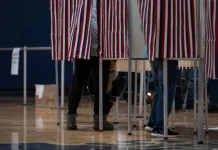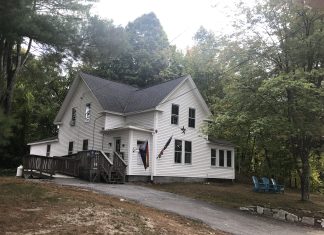On Friday the 6th of December Elizabeth Warren paid a visit to the New England College campus for a town hall meeting where she discussed some of the staples of her 2020 presidential campaign. Before the town hall Warren agreed to meet with this reporter for a face-to-face to discuss some of her ideas along with some specifics of what she can bring to the table that other candidates may not be able to.
“I see the biggest problem in America right now as government corruption. We have a government that works great for the wealthy and the well connected, and it just isn’t working for much of anyone else. The reasons are many, campaign contributions, lobbying, bought and paid for experts. It’s critically important to start there, because every change we need to make is blocked by money.”
She explained that the root of most of the issues we face as a nation are corporate funding and economic corruption. Eliminating the influence of money, “or at least disrupting it,” Warren claims would open many doors for what she calls “big structural change,” in regards to environmental issues, the economy, gun safety, education, and more.
Furthermore, Warren explained that she is in favor of rolling back the filibuster (a political procedure where one or more members of parliament or congress debate a proposed piece of legislation so as to delay or entirely prevent a decision being made on the proposal), which many of her competitors aren’t in favor of. She argues that “if we give the Republicans an effective veto against big change, they’ll use it every chance they get.”
Warren shared some anecdotes from her life growing up in a working class American family in the mid-twentieth century, stating that her mother was able to support her family of three while paying her mortgage on a full time minimum wage job, which is no longer feasible in today’s economy. She then talked about how she supported herself through law school on a part time waitress job, which again, is no longer feasible, further supporting her stance that the current government and economy works very well for the wealthy, but leaves the poor floundering.
Similar to Senator Bernie Sanders, Warren explained that this problem, as well as many environmental issues, and the student loan debt which weighs down many U.S. citizens, can be addressed by a tax on the extremely wealthy (those with fortunes over 50 million dollars) in America. The tax would work by taxing two cents on every dollar over fifty million and then three cents on every dollar after a billion dollars and so on. Additionally, she wants to increase the wages of child care workers and provide public child care, add $800 billion to public education, fully fund I.D.E.A. (Individuals with Disabilities Education Act), and create tuition free technical schools, as well as two and four year colleges.
She finished her talk by touching on how she would like to eliminate voter suppression and gerrymandering in the U.S. before taking questions from the audience.
Throughout the meeting Warren made sure to emphasize the importance of the voters to the process of making grand changes in Washington, referring to the change she is trying to make as a grassroots movement that attempts to mobilize large groups of people to take some action.
In our interview, she also explained what a former teacher could potentially bring to the table as president.
“Teachers see the worth in every human being. I was a Special Education teacher and I saw how every single one of my students had value, and that we need to build a world that works not just for those born into privilege, but that works for everyone.”
Finally, she touched on what she might look for in a vice presidential candidate, should she make it onto the presidential ballet stating that she “wants a partner who is ready to roll up their sleeves and get to work. [She doesn’t] want someone to just be ceremonial, or to balance out the ticket, [but] wants a fighter, someone who cares about rebuilding our democracy and rebuilding our country.”
Warren concluded, ““There has been a lot broken in this world for a long time, but 2020 is our moment in history, our chance to build an America in which everyone gets a real chance.”



















